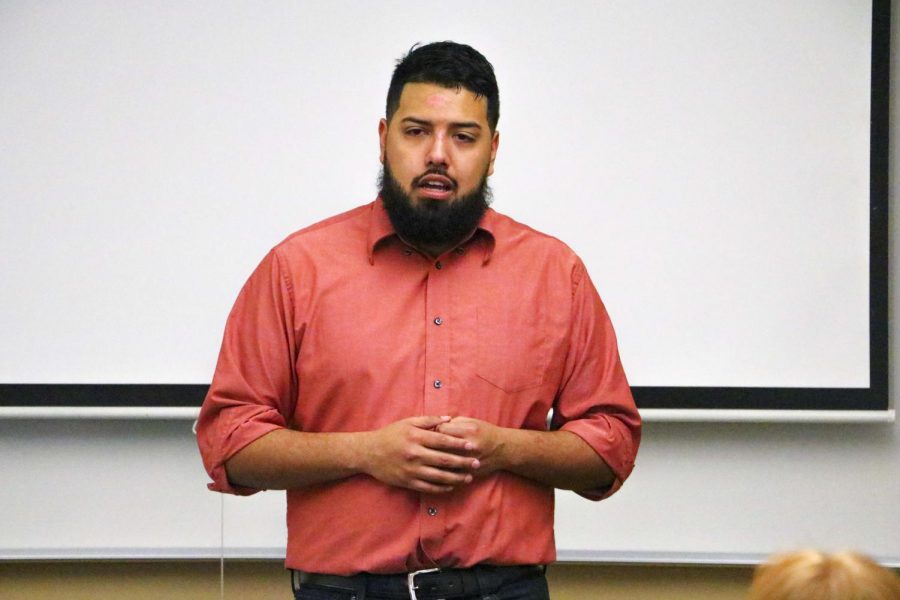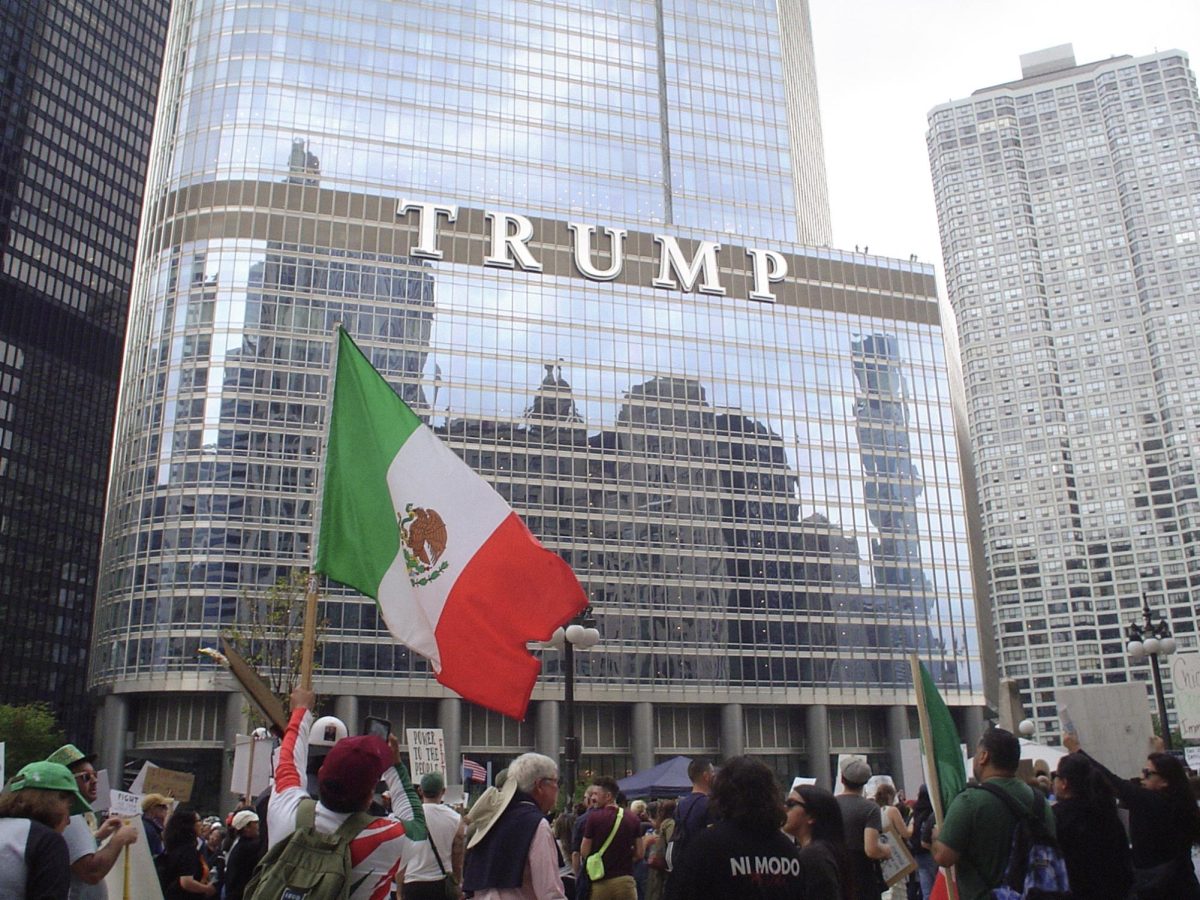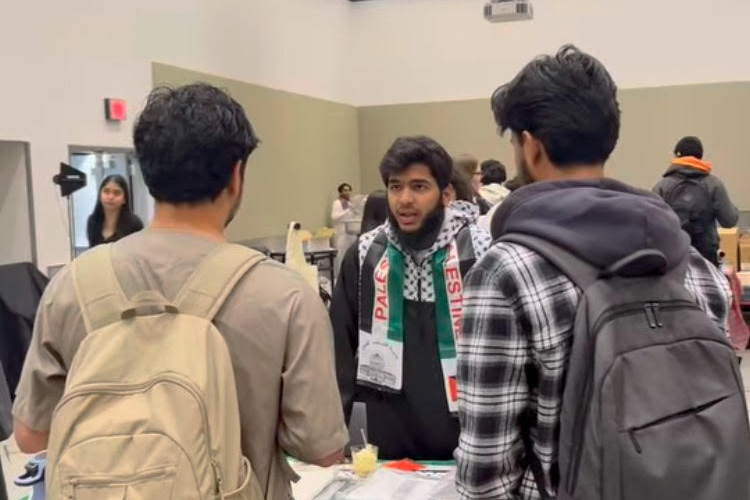Immigration activist talks about DACA at COD
Juan Garcia during his presentation at COD
March 13, 2018
Juan Garcia, a local immigration activist, is fearlessly debunking myths about undocumented immigrants.
“Never be afraid to talk about the issues whether people agree with you or not,” said Garcia. “Many people don’t understand the hurdles undocumented immigrants have to go through.”
And this is the reason he wants College of DuPage (COD) students to support efforts aimed at resolving the legal limbo for Deferred Action for Childhood Arrivals (DACA) recipients.
Garcia spoke to a small but appreciative group of students and faculty at an event organized by the Human Services Network (HSN) club at COD. Garcia is a member of the board of directors for Aurora Hispanic Heritage Board. He also serves as the president of the Immigrant Liberation Alliance, an Aurora-based organization working with community leaders on organizing, education and civic engagement to empower immigrants.
In Sept. 2017, President Donald Trump gave Congress six months to pass immigration reform legislation with a clause that provides a path to citizenship for DACA recipients. Trump’s six-month ultimatum ended on March 5.
Federal courts in California and New York issued injunctions that prevented the Trump administration from ending DACA. The Supreme Court then refused to hear a DACA-related case pending a review by an appeals court.
“The rhetoric now is: why do we want criminals?” Asked Garcia. “DACA recipients had to go through a hard vetting process in order to get accepted. They can’t have any criminal record at all. They had to be the best of the best in order to get accepted.”
For Garcia, DACA is a temporary reprieve. The legal status of over 700,000 young people is still murky, although they are protected from deportation. For him, this is the reason why students should support the DREAM (Development, Relief and Education for Alien Minors) Act.
“We can’t be happy with just having DACA,” Garcia said. “We need something more permanent, and that’s why Congress must act now.”
The DREAM Act has seen stiff resistance since it was introduced in 2001. In 2010, Democrats in the Senate didn’t get the required number of votes to advance the act after it was passed by the House of Representatives.
A recent bipartisan version of the act was introduced in June 2017 by Senators Lindsey Graham (R-SC), Dick Durbin (D-IL), Jeff Flake (R-AZ) and Chuck Schumer (D-NY). Unlike the 2010 version of the act, the 2017 version would give permanent resident status to DACA recipients if they meet prescribed employment requirements.
The passage of the act is still an uphill battle for immigration activists, DREAMers and members of Congress. The White House has said any bill seeking to give a pathway to citizenship for DACA recipients must include funding for a $25 billion wall along the southern border, bring an end to “chain migration,” and end the diversity visa program. However, the White House has a plan that will provide a pathway to citizenship for an estimated 1.8 million people to include people on Temporary Protected Status (TPS) in the United States.




















